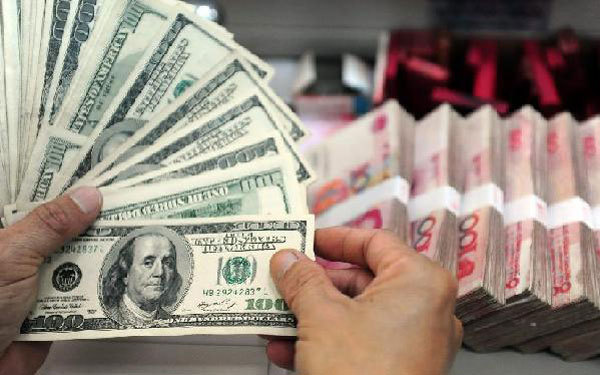
The Chinese central bank's yuan funds outstanding for foreign exchange (forex) continued to fall in November weighed on by lingering capital outflow pressures amid a weakening yuan against the U.S. dollar.
The funds declined 382.7 billion yuan (around 55.44 billion U.S. dollars) month on month to 22.26 trillion yuan, data from the People's Bank of China showed Wednesday.
It is the largest monthly drop this year and marks the 13th consecutive month of declines.
As the Chinese currency is not freely convertible under the capital account, the central bank has to purchase foreign currency generated by China's trade surplus and foreign investment in the country, adding funds to the money market.
Such funds are an important indicator of cross-border foreign capital flows and domestic yuan liquidity.
Concerns about capital outflows had been on the rise as the economy slowed, possibility of a U.S. rate hike loomed and the Chinese currency had fallen since China revamped its forex mechanism last year
China's forex reserves, another indicator of capital outflow, fell for the fifth straight month in November to 3.05 trillion U.S. dollars, down 69.1 billion dollars from October levels.
The State Administration of Foreign Exchange has dismissed huge capital outflows, via an anonymous official last week, saying the situation was still stable.
The Chinese currency remained weak against the U.S. dollar, with the central parity rate softening 94 basis points to 6.9028 against the U.S. dollar Wednesday.


 川公网安备 51019002001991号
川公网安备 51019002001991号





